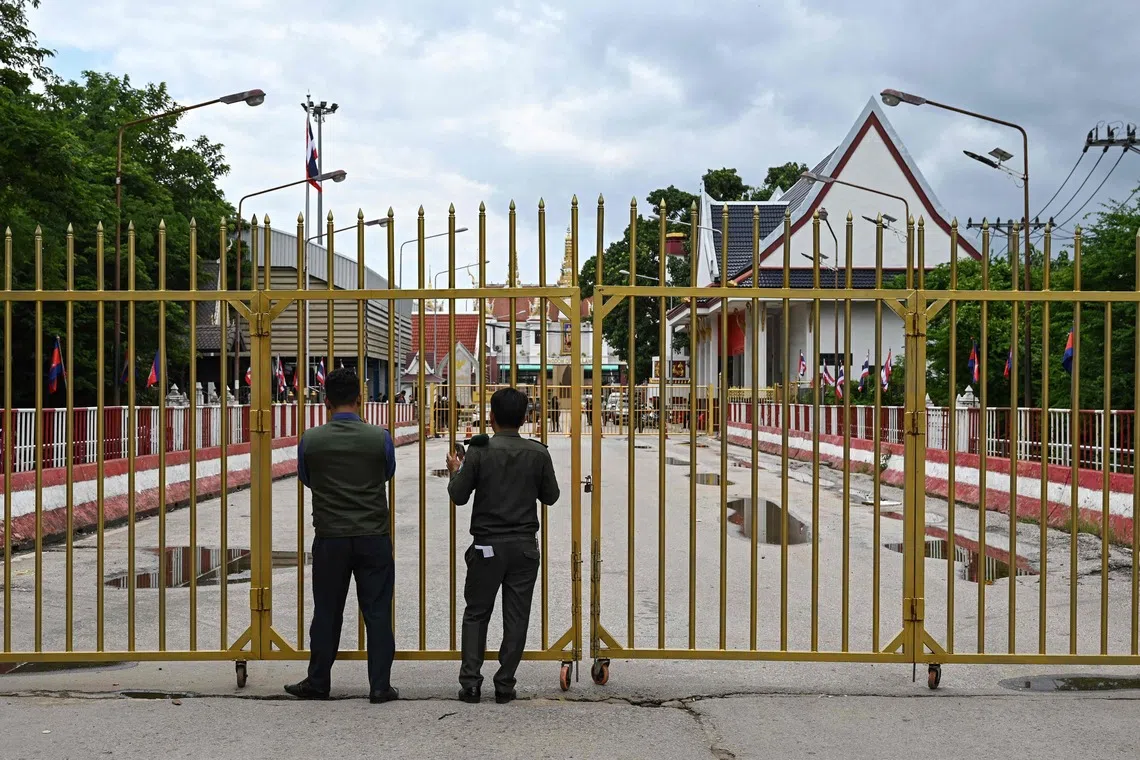Cambodian scam rings moving operations to Thailand: South Korea report
Sign up now: Get insights on Asia's fast-moving developments

Cambodian police officials at the Poipet International border checkpoint between Cambodia and Thailand on June 24.
PHOTO: AFP
Follow topic:
BANGKOK – South Korean media outlet Sisa Journal has published an exclusive report on the growing wave of transnational cybercrime, revealing that scam networks which recently fled Cambodia are now re-establishing operations in Thailand.
The report cites an interview with a Chinese middle-manager working for one such criminal organisation based in Thailand. He admitted that despite intense crackdowns in Cambodia, the scam industry remains highly lucrative and is expected to continue expanding over the next two to three years.
While Thailand’s immigration procedures have become stricter, he said syndicates still manage to bypass enforcement.
The manager explained that job applicants are strictly vetted – those with records of travelling to Myanmar, Laos or Cambodia are automatically rejected, as Thai immigration closely monitors travellers from those countries due to concerns about illegal activities.
The syndicates’ main recruitment targets are young South Koreans aged between 20 and 30, as they believe that those over 40 lack the communication skills required for voice-phishing operations.
Applicants are offered enticing weekly pay packages, with skilled workers allegedly earning between 10 million won (S$9,000) and 15 million won per week.
The operation has a three-tier structure:
Level 1 (entry workers): Tasked with repetitive cold calls to identify potential victims.
Level 2: Use persuasive skills to lure targets into scams.
Level 3 (senior operators): Experienced members with financial knowledge who handle complex operations.
The syndicate enforces two strict rules – no alcohol on weekdays and no drug use – to prevent police run-ins that could expose their base. Members are also prohibited from exchanging personal information.
Applicants must submit a copy of their passport, a health record, and, surprisingly, a criminal background report. The manager said this was to help identify suspects in the event of internal theft, adding that even those with sexual offence records were considered a risk to operations.
Meanwhile, South Korean police are coordinating with the Cambodian authorities to rescue South Korean victims. However, Sisa Journal reports that while crackdowns intensify, scam gangs continue to regroup – with some already relocating and recruiting new members inside Thailand. The manager admitted that his organisation currently employs at least 12 South Koreans. THE NATION/ASIA NEWS NETWORK

